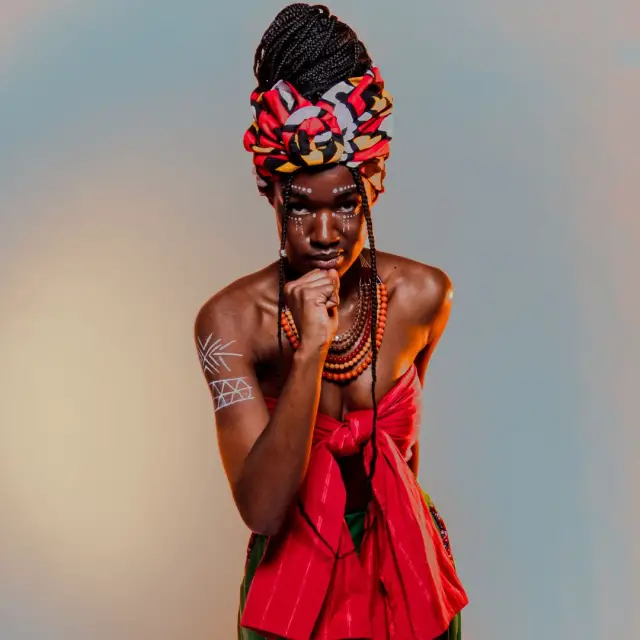Colombia is a country of extraordinary cultural diversity, where indigenous, European and African traditions, among others, coexist. This amalgamation of cultures has given rise to a rich festive tradition that is celebrated throughout the year. In particular, Afro-Colombian festivities are a fundamental aspect of the country's festive calendar. These celebrations are not only an expression of the identity and heritage of the black community, but are also a reflection of resistance and cultural adaptation.
Origin and Meaning of Afro-Colombian Festivities
Afro-Colombian festivities have their roots in African traditions brought by slaves during colonial times. Despite the oppressive conditions, enslaved Africans found ways to preserve their customs and beliefs, adapting them to the new environment. These celebrations were mixed with indigenous and European influences, giving rise to a unique festive culture.
Afro-Colombian festivities are a mix of religious celebrations, rituals of gratitude and manifestations of daily life. Its importance lies in the preservation of cultural identity and the transmission of ancestral knowledge to new generations.
Main Afro-Colombian Festivities
Throughout the Colombian calendar, there are several festivities that stand out for their Afro-Colombian character. Below are some of the most important ones:
The Baranquilla carnival
The Barranquilla Carnival is one of the largest and best-known celebrations in Colombia, declared Intangible Cultural Heritage of Humanity by UNESCO in 2003. Although it is a mix of European, indigenous and African influences, the Afro-Colombian contribution is significant.
During the four days of carnival, the city is filled with parades, music, dances and costumes. Among the most prominent Afro-Colombian expressions are the comparsas and dances such as the cumbion, the Mapalé and the Champeta. The cumbion, for example, has African roots and is a manifestation of the history and resistance of slaves.
Feast of San Basilio de Palenque
San Basilio de Palenque, located in the department of Bolívar, is known as the first free town in America, founded by maroon slaves who fled oppression. Every January 20, the Feast of San Basilio is celebrated, one of the most important Afro-Colombian festivities.
This celebration includes traditional dances such as the lumbalú, which is a ritual manifestation of African funerals, and the puja, a joyful and energetic dance. In addition, rituals and ceremonies are carried out that remember the history of resistance and freedom of the palenqueros.
The Festival of Drums and Cultural Expressions of Palenque
This festival takes place in San Basilio de Palenque itself and is a celebration of Afro-Colombian music and dance. It takes place at the end of October and brings together musicians, dancers and artists from all over Colombia and other countries of the African diaspora.
The festival is an opportunity to celebrate and preserve African cultural heritage, with activities including dance and drumming workshops, concerts and theater performances. It is an event that highlights the importance of music and the drum in Afro-Colombian culture.
The Festival of San Pacho
The Festival of San Pacho is a religious and cultural celebration that takes place in Quibdó, Chocó, in honor of Saint Francis of Assisi. This festival, which takes place during the month of October, is a vibrant manifestation of the Afro-Colombian culture of the Pacific.
Celebrations include religious processions, traditional dances, and music. The chirimía, a musical style characteristic of Chocó, is fundamental in this festival. The mix of religious elements with Afro-descendant traditions makes San Pacho a unique and emotional celebration.
The Importance of Afro-Colombian Festivities
Afro-Colombian festivities are much more than just cultural events; They are deep expressions of identity, resistance and resilience. Through these celebrations, Afro-Colombian communities can preserve and transmit their traditions and values.
Furthermore, these festivities play a crucial role in social cohesion and community strengthening. They are moments of encounter and reflection, where family and community ties are reaffirmed. They are also a platform to claim the rights and visibility of the Afro-Colombian population, which has historically faced discrimination and marginalization.
Challenges and Future of Afro-Colombian Festivities
Despite their cultural and social importance, Afro-Colombian festivities face several challenges. Globalization and modernization can threaten the preservation of ancient traditions. Furthermore, the lack of institutional and financial support can make the organization of these events difficult.
However, there is a growing recognition of the importance of these festivities. Both nationally and internationally, there are efforts to protect and promote Afro-Colombian cultural heritage. UNESCO and other organizations have highlighted the value of these celebrations and have supported initiatives for their preservation.
The future of Afro-Colombian festivities depends on the ability of communities to adapt to changes without losing their essence. Education and awareness are essential to ensure that new generations understand and value their cultural heritage.
